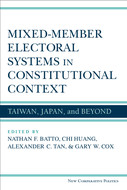For 15 years, the EDUCAUSE Center for Analysis and Research (ECAR) has conducted research on information technology (IT) and higher education’s most important end users, undergraduate students. While the form, function, and findings of these reports have evolved over the years, the common thread that binds them is a need to understand students’ perspectives on how technology impacts their academic experiences and how they are using technology to enhance their academic success. Of particular note in this year’s report is our inclusion of the perspectives of students with learning and physical disabilities on how their institutions respond to their technology, accessibility, and academic needs. We are excited to be presenting, as part of our diversity, equity, and inclusion (DEI) initiatives, these findings for our 2018 report.1 Although higher education IT organizations are the primary audience for this report, we are confident that these findings can benefit administrators and staff in faculty and professional development programs; instructors from every type of institution, discipline, and level of experience; student affairs professionals; and students themselves. Our aim for this report is for these diverse institutional stakeholders to leverage these findings and recommendations to contribute to institutional IT and academic goals and, most importantly, to student success. In this report, readers will find data and analysis related to the following topics: Device access, use, and importance to academic success.
- Campus Wi-Fi experiences
- Learning management system (LMS) use and satisfaction
- Student learning environment preferences
- Experiences with instructors and technology
- Commuter students and internet access
- Student online activities
- Institutional awareness of student disability and accessibility
- Student use and assessment of success tools






